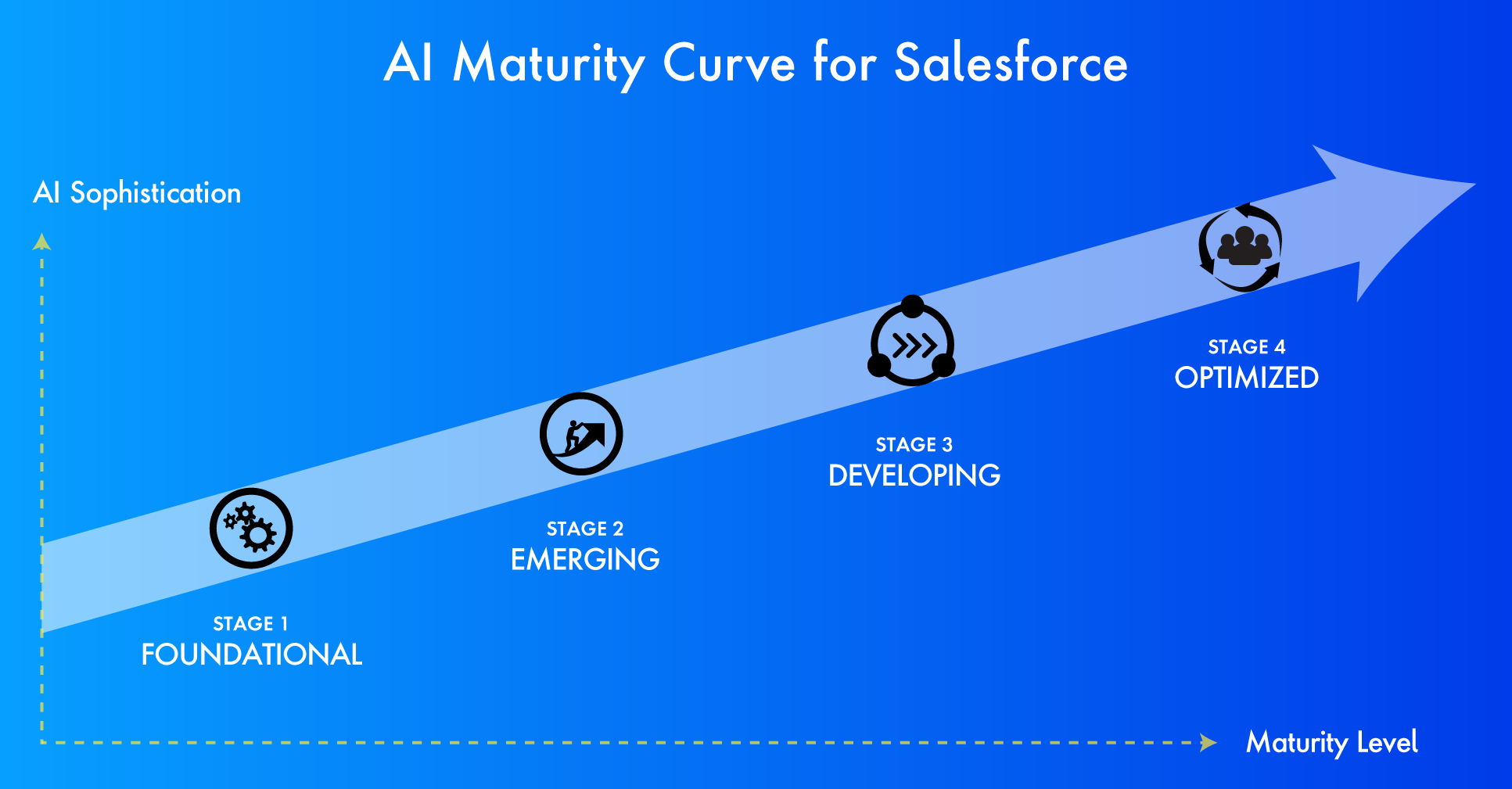The transformative power of AI lies not just in the technology itself but in its seamless integration into an organization’s strategy, its alignment with business objectives, and the ethical considerations guiding its deployment. Salesforce’s Einstein GPT, the Einstein Trust Layer, Einstein Studio, and other emerging capabilities offer a compelling reason for organizations to assess, identify and recognize their own AI maturity. More importantly, the recently announced Einstein Studio streamlines AI integration for businesses, combining a "bring your own model" (BYOM) solution and curated AI for efficiency.
What We Do
You want to grow, modernize, stay relevant and delight customers. We partner with you to achieve your goals and create impact through AI-powered digital business transformation.
back
What We Do- Industries
- Solutions Solutions All Solutions
-
What We Do
You want to grow, modernize, stay relevant and delight customers. We partner with you to achieve your goals and create impact through AI-powered digital business transformation.
-
-

About Us
Curious? Get to know us a little better.
-







